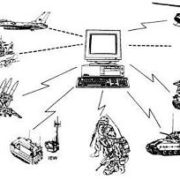 Eye spy
Eye spy
I was having dinner with a new acquaintance when an Unmanned Ground Vehicle (UGV) bumped my foot. I looked down and saw a radio-controlled toy.
“Oh, don’t mind that,” said my host. “That’s just my son playing.”
“He plays too much with that thing,” groused the boy’s father. “What really bothers me is that it has a camera. I’m don’t like being spied on in my own home.”
ISR success is a problem
My hosts’ son had discovered what many developers have known for years; unmanned systems are a wonderful platform for Intelligence, Surveillance, and Reconnaissance (ISR). Usually, ISR is more associated with Unmanned Aerial Vehicles (UAVs), while the signature missions of UGVs are Improvised Explosive Device (IED) detection and Explosive Ordinance Disposal (EOD). However, as the Throwbot, and similar devices demonstrate, UGVs are also effective for ISR applications.
It’s the very effectiveness of unmanned platforms in performing ISR that is generating fears about privacy. The father’s complaint about a snooping mobile camera is not unique. Privacy is one of the “Big Three” obstacles to widespread adoption of unmanned systems (the other two are concerns about liability and lack of appropriate regulation).
Privacy fears are no longer limited to groups such as the anti-war Code Pink, and the ACLU. Senator Rand Paul recently demanded explanations from the FBI about their use of UAVs. Six states have passed laws prohibiting public agencies from using UAVs and/or declaring evidence collected by them as inadmissible in court. With the FAA predicting 30,000 UAVs by the end of the decade, we can even more paranoia generating even more restrictions.
Your car is watching you
Although the specter of eye-in-the-sky UAVs may get the most attention in the media, safeguarding privacy may be an even bigger headache for UGVs. Autonomous cars are essentially UGVs in which passengers are the payload rather than the operator. A study revealed that 20 to 37% of consumers expressed an interest in driverless cars. If this study is valid, the number of autonomous cars will easily dwarf UAVs. Add in healthcare robots, telepresence, and social welfare applications, it becomes evident that the public will have more interactions with UGVs than UAVs.
Activists groups are paying attention. In California, laws allowing self-driving cars to cruise its highways have raised the ire of a consumer watchdog group (the group is unimaginatively named “Consumer Watchdog”). In a letter to Californian government officials, they write, “Without appropriate regulations, Google’s vehicles will be able to gather unprecedented amounts of information about the use of those vehicles. How will it be used? Just as Google tracks us around the Information Superhighway, it will now be looking over our shoulders on every highway and byway.”
Personal autonomy, personal information, and surveillance
If you want an idea of how complicated regulating autonomous cars will be, check out Privacy in Autonomous Vehicles in the Santa Clara Law Review, written by a privacy and transportation law expert, Professor Dorothy J. Glancy,
“When autonomous vehicles become a common mode of personal transport, three types of privacy interests will influence public acceptance of autonomous vehicles and possibly result in legal restrictions on how autonomous vehicles can be designed and operated. These three types of privacy interests are personal autonomy, personal information, and surveillance (my italics).”
Glancy defines personal autonomy privacy as “…an individual’s ability to control such matters as who knows where she is now, where will she go next, when she will depart, how she will get there and with whom, as well as who can predict or decide where, when, and how she will travel in the future.”
Will the passenger’s destination be fed into a central network whose responsibility is to lessen traffic congestion? Who will have access to that information? Can the passenger insist on a route that the network thinks will lead to more congestion and less safe driving conditions? How much control will the passenger exercise over an autonomous vehicle?
The problem with personal information is similar to concerns that we are already seeing with data mining on the Internet. I look forward to the day when I can enter an autonomous car and tell it to take me to a grocery store. I don’t look forward to being assaulted by ads promoting specials and deals at the store. Nor am I comfortable with the idea that somewhere some big multinational (or government) will have a complete record of all my comings and goings.
The issues with surveillance are also similar to what we are seeing today. When can the government demand the data from my use of autonomous cars? If you routinely rent a car (which some futurists expect to be the most common form of autonomous vehicles), does the government need a warrant to demand data from the rental company?
Privacy is a problem for all civilian UGVs
Note how the privacy concern about autonomous cars extends to other civilian applications of UGVs. Consider a healthcare robot that injects medication into a patient. Will an insurance company be able to demand the records of a healthcare robot about a patient’s compliance with medication? In a semi-public hospital setting this may not seem invasive, but this may not be true in a home care situation. Can the patient overrule the unmanned system about the amount and timing of medication? Can the government secure the records to investigate if the patient is forgoing injections and selling the medicine on the black market? Since he doesn’t own the robot, he may not have an expectation of privacy for this very personal information.
Privacy is a technological problem
For unmanned system developers, privacy may seem like someone else’s problem. As long as they are permitted to sell their offerings on the market, who cares what the laws are? That’s a political challenge not a technological one.
Glancy contends that unmanned system developers will have to pay special attention to privacy concerns, because they “… will influence how autonomous vehicles are configured, just as individual privacy and freedom will be affected by the ways in which autonomous vehicles are designed and operated. Infusing privacy into these powerful disruptive technologies will present many challenges, none of them insurmountable. In the end, the future success of autonomous vehicles will depend in part on how well privacy interests and autonomous vehicles can work together.”
If a manufacturer produces a robot that can be configured easily to comply with new privacy laws, it may end up to be the “next big thing,” instead of a technological “also ran.” Privacy may prove to be a major factor in determining which unmanned technology becomes widespread.
Who knows? Maybe UGVs will even get a “child-proof” chip, so the father mentioned at the beginning of this article can be safe from prying eyes.






